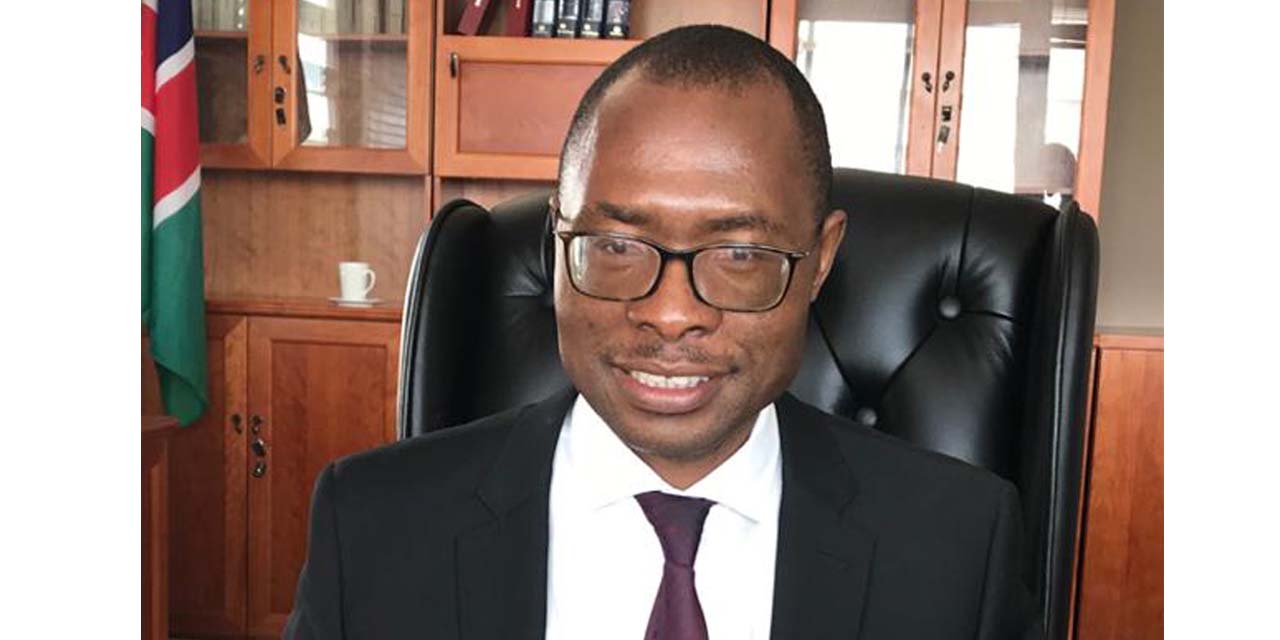Kandjemuni Kamuiiri and Tujoromajo Kasuto
Finance Minister, Iipumbu Shiimi, says Government has no plans to cut salaries of ministers as part of cost cutting measures as they are already paid pennies compared to managers in the private sector.
This is in response to whether ministers will be taking salary cuts in solidarity with thousands of Namibians whose salaries were cut by half due to the economic strains brought on by the COVID-19 pandemic. “Government employees don’t get paid much compared to the private sector. We have discussed it but it will not be considered because it would not be beneficial in the long run. What is the point of collecting pennies from people? Who will it go to and how many people will it help?” he told the Windhoek Observer.
A Namibian cabinet minister racks in N$1, 089 185 per annum including allowances, translating to about N$91 000 per month, while a deputy minister takes home N$788 366 per annum. Shiimi said implementing salary cuts will create tension among the executive. “Some people’s salaries have fallen behind already in the previous year and introducing salary cuts and cutting their salaries would not work, but rather create tension,” the Finance minister said.
President Hage Geingob, recently appointed three new deputy ministers, increasing the size of his cabinet to 21 ministers and 20 deputy ministers, despite earlier vowing to work with a leaner cabinet in his second term. Maureen Hinda-Mbuende was appointed Deputy Finance minister, Veno Kauaria Deputy Higher Education minister and Heather Sibungo Deputy Environment, Forestry and Tourism minister.
The salaries for the three deputy ministers will cost tax payers an additional N$2,3 million per annum, bringing the total costs of all deputy ministers to N$ 15.8 million per year.
Political Analyst, Henning Melber, said the appointments by the President, contradict his earlier promise to work with a leaner cabinet. ”It is surprising that the President promotes a leaner government, seeks praise for this and then adds three deputy ministers to expand the size again.”
“It would help if he would clarify what the added value is. There is of course always a balancing act, and the costs involved might be matched by the competences and inputs the appointees offer. This would assume they offer value for money.”
Melber further explained that “the notion of value is one subject to interpretation: they might be strengthening the President’s power base by adding to “Team Hage”, both in government and the party, some additional weight and support. Then the decision is guided by party internal interests of the President, and not by those regarding good governance in the wider public interest.”
Melber added that the additional cost of appointing three new deputy ministers might be justified and accepted, if the reasoning given by President, on appointments is convincing. ”It therefore would be helpful if a transparent manner would give the concrete details and motivations for the qualification that merits the appointment of the three deputy ministers, and the overall rationale why the ministries in each case need another high-ranking official. Does this suggest that the ministers are not able to run the show without the deputies?” Melber questioned.
According to People’s Democratic Movement (PDM) leader, McHenry Venaani, “the very reason why Geingob after having bruising elections in 2019, attempted to appoint a leaner cabinet means to say he is cutting costs and is listening to Namibians.”
“It’s becoming very clear later on that he does not really worry about that cost that he was worried about then, now he wants to appoint more. So he must now tell us what was the reason he appointed two ministers two years ago and what the reason is now. The issue of cost is quite high and there are some ministries that really do not need deputy ministers,”
Former Prime minister, Nahas Angula, shared Melber’s sentiments. “I am [surprised] with the current economic situation post are being filled, from an economic point of view. I thought this is the time to be a bit circumspect with regards to the Government expenditure but perhaps the President sees things differently than we do. Because he has got more information about the economy, but under the current economic situation, perhaps it might not have been prudent to expand the executive as we know the economic situation is not favourable,” said Angula.
Angula further vented that it is impertinent to fork out tax payers millions to pay salaries as it is for providing services especially for poor people in informal settlements who need basic needs like water.
“I am part of the public and I feel that City of Windhoek is forever increasing their cost. I do feel like I have the same concern as a member of public who is also being taxed heavily, and of course one has to hope that the tax, which we are paying, is going to provide services to the public in general but if it’s going to pay salaries, to me, we are taking tax payers for granted,” Angula said.




